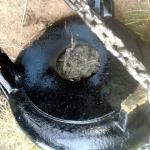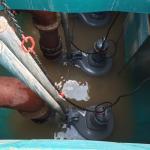How The Wrong Pump Can Affect Performance
Whilst the total cost of ownership is a consideration that should be made when specifying a pump. The most important factor is that the pump performance
Whilst the total cost of ownership is a consideration that should be made when specifying a pump. The most important factor is that the pump performance is fit for its purpose and will ensure the optimal level of productivity. Choosing the wrong pump can have many knock-on effects, including additional downtime, increased maintenance, and higher energy consumption among others.
When choosing a pump for your project, factors such as the viscosity of the liquid, required flow rate, material temperature, and whether there are any foreign materials or corrosives in the liquid being moved all have a part to play in selecting the right pump for your needs. Some are designed to be used in low viscosity environments, others in high viscosity or high solid content. In addition to this, some pumps are more suited for use with chemicals.
For example, when treating wastewater the build-up of sewage waste would cause problems for most pump types. However, in this instance, many systems make use of grinder pumps that break down any sewage waste until it becomes a slurry or liquid. The pump then creates sufficient pressure to move the sewage towards the main sewage system. In its liquid form, it is easier for it to be pumped against the natural force of gravity and this also significantly reduces the risk of any blockages in the pipeline or sewage system
Selecting The Wrong Pump Affects Process Performance
In wastewater treatment processes, polymers are added to thicken sludge by attracting the suspended fine particles together to produce larger groups of solid materials through a process called flocculation.
These flocculants are not only extremely vicious but are also sensitive to shear actions once hydrated. Selecting the incorrect pump can affect the metering accuracy, damage the polymer structure, and potentially the efficiency of the thickening process. In other words, the pump is not suitable for that purpose.
If the wrong pump is selected the build-up around the impellers in the pumps will severely affect the flow, causing the pumps to be regularly dismantled and cleaned.




